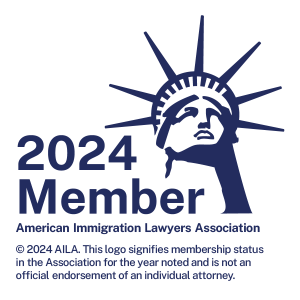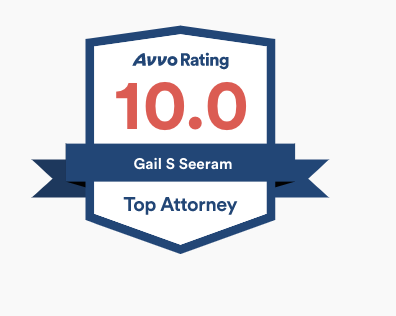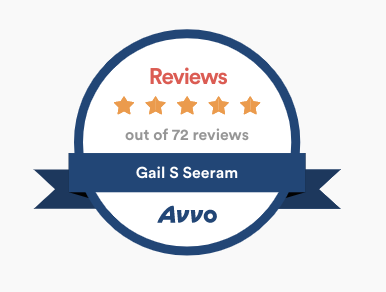As March is Woman’s History Month, it is appropriate to celebrate the contributions made by women and bring awareness to programs that benefit women. One such program was created under the Violence Against Women Act (VAWA), which grants victims of abuse legal status in the United States. VAWA benefits both women and men who are victims of abuse.
However, most of the cases processed under VAWA involve women and children who were victims of abuse. In general, if you are married to a U.S. citizen or lawful permanent resident (green card holder), have no legal status in the U.S. and are a victim of abuse, then you can self-petition for lawful permanent resident status in the U.S. For many immigrant victims of domestic violence, battery and extreme cruelty, the U.S. citizen or lawful permanent resident family members who would submit their applications will threaten to withhold legal immigration sponsorship as a tool of abuse. The purpose of the VAWA program is to allow victims the opportunity to “self-petition” or independently seek legal immigration status in the U.S. – abused spouse can get immigration benefits.
Do I have to be legally married or live with my abusive spouse in order to self-petition?
- It is not required that you live with your abusive spouse. However, the general rule is that you must be legally married to the abusive spouse when the self-petition is filed. In the situation where you are divorced from your abusive spouse, then you must meet one of the following exceptions in order to self-petition: (1) you believed you were legally married to your abusive spouse but the marriage is not legitimate solely because of the bigamy of your abusive spouse; or (2) your abusive spouse died within 2 years of filing the petition; or (3) your abusive spouse lost or renounce his citizenship or lawful resident status due to an incident of domestic violence; or (4) your marriage to your abusive spouse was terminated within the 2 years prior to filing of the petition, and there is a connection between the termination of the marriage and the battery or extreme cruelty. Note, after your petition has been filed, legal termination of the marriage will not usually affect the status of your petition.
How long is the processing time if I self-petition as a battered spouse?
If you file a self-petition under VAWA, then you must go through a two-step process. First, a Petition for Amerasian, Widow(er), or Special Immigrant must be submitted to U.S. Citizenship & Immigration Services with the required documents and proof of battery or extreme cruelty. Second, if the petition is approved, then you must submit an application for adjustment of status. Note, you must provide proof of lawful admission into the United States or eligibility under an exception such as INA Sec. 245(i). In general, the processing time for the battered spouse of a U.S. citizen is about six to nine months and about three to four years for the battered spouse of a lawful permanent resident.
Why is the processing time longer for a battered spouse of a lawful permanent resident?
Under the laws, a visa is immediately available for the spouse of a U.S. citizen, therefore, adjustment of status can take 3-4 months after approval of the battered spouse petition. However, the spouse of a lawful permanent resident is a 2A preference category and the backlog for a visa can be 3-5 years after approval of the battered spouse petition.
ADVICE & REFLECTIONS FROM A “BATTERED WOMAN”:
My office offers pro-bono (free) legal services as a case-by-case basis to battered women or children who would like to self-petition for legal status in the United States. A former client who gained legal status through a self-petition as a battered spouse wanted to share her story in order to encourage and inspire other women:
Q: How did you learn about this relief?
I never thought there was relief for a battered woman. I went to Gail Seeram’s office with a friend who was seeking advise on her case and when the attorney asked me about my status, I told her my husband filed but never followed through. My husband wanted me to continue to be dependent on him and didn’t want to see me legalize my status.
Q: What has been your experience with the filing?
My attorney did all the work and did it for free. From start to finish it took a little under a year and a half.
Q: Why did you remain in an abusive relationship?
He paid the bills and I was not allowed to work because I had no papers. I had a child with him and we had nowhere else to go. He provided all the financial support. It was like being in jail without the 4 walls. You can’t get out.
Q: How did you get out?
I finally got the nerve to call the police after one of his brutal attacks on me and I got a restraining order against him. I moved out and rented a room with my child. My friends and family from abroad gave me the financial and emotional support I needed to free myself from that situation.
Q: How has your life changed since getting a green card?
Drastically. I got a job, my own apartment, can take care of my daughter on my own. I feel like a million bucks though I have little. I have set goals for myself which include getting my GED and enrolling at Valencia Community College. I have my confidence back since my husband took that away from me years ago. Abuse is not only physical; the emotion abuse takes away your confidence and self-esteem.
Q: What is your advice for women in your situation?
Get out. It is not worth putting your life at risk. You or your child may end up dead. Seek out community organizations that offer services for battered women. Its not worth staying to get your immigration documents. I stayed with my husband for nine years and still did not get my immigration documents through him. There are other ways to get your documents. Seek assistance from Attorney Gail Seeram who provided free legal services to me and my family.
Resources:
Harbor House of Central Florida: 24-Hour Crisis Hotline (407) 886-2856
Safehouse of Seminole: 24-Hour Crisis Hotline (407) 330-3933
For more information, email [email protected] or call 1-877-GAIL-LAW or 407-292-7730.
FREE in-office consultation – FREE Live Chat www.GailLaw.com
Copyright © 2016, Law Offices of Gail S. Seeram. All Rights Reserved.













